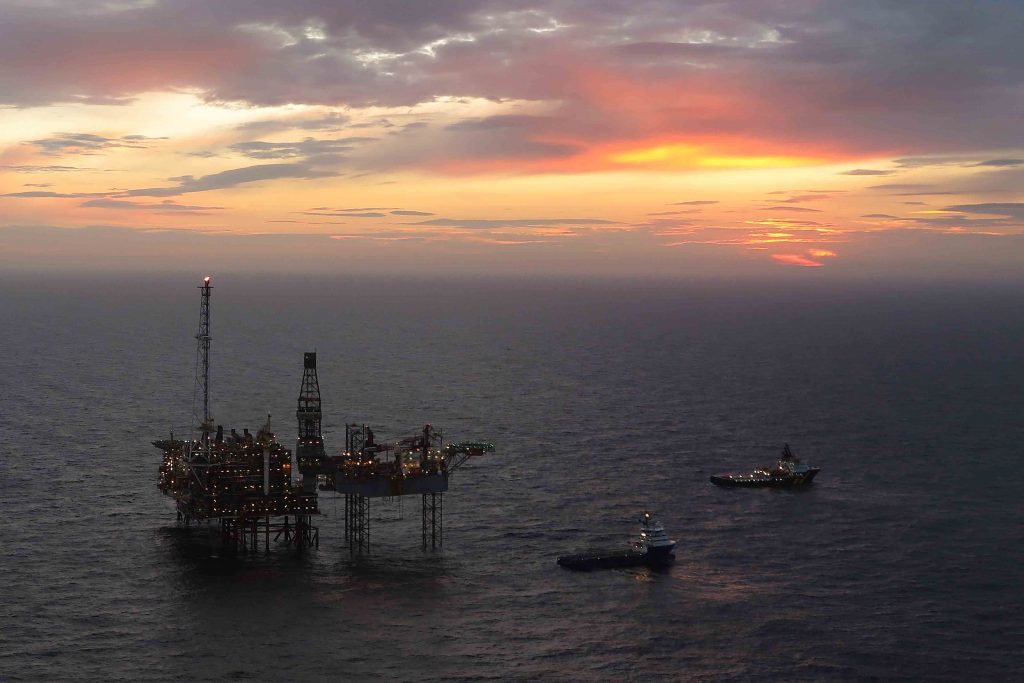
Oil giant BP has come under fire for flying workers offshore while the results of their coronavirus tests were still outstanding.
The energy firm, who this week announced a new onshore virus screening facility in Aberdeen, is accused of putting worker safety at risk after it flew 12 contractors with pending Covid-19 test results out to its ETAP platform in the Central North Sea.
One crew member on the flight tested positive for coronavirus less than 24 hours later.
It is understood BP tested around 30 workers for Covid-19 on Thursday and flew half the crew out on Friday, with results not due until Saturday afternoon.
Two workers refused to get on the helicopter to the ETAP platform due to personal safety concerns.
BP confirmed last night that one worker had tested positive for coronavirus on the North Sea installation, but said it was “going to great lengths” to introduce “wide-ranging and robust” measures to protect staff and contractors.
One worker, who spoke to Energy Voice and did not wish to be named, said: “Testing is a good thing, but BP could have been sensible and waited for 24 hours – they’ve made a massive mistake here.
“We maybe shouldn’t have got on the helicopter, but we didn’t know someone was going to fail the test.
“The current situation is pretty bad and people are scared.
“BP should have waited until everyone had passed and put everyone’s mind at ease.”
The 12 workers were isolated for 24 hours following their arrival on the platform, but were told to undertake work only hours after their test results and the discovery of the positive case onboard.
The affected worker was airlifted from the asset shortly after receiving his results on Saturday.
A BP spokesman said: “BP can confirm a member of crew on the ETAP platform, who was not showing any symptoms, has tested positive for Covid-19.
“The individual was safely returned to shore by helicopter on Saturday.
“The ETAP offshore installation manager (OIM) and offshore medic evaluated the rest of the crew and, as a precautionary measure, the 12 people who travelled with the individual who tested positive were advised to self-isolate on the installation.
“These individuals had mobilised under a temporary “test and fly” arrangement following tests carried out at a testing facility in Aberdeen.
“BP has now moved to a “test and wait” process which will ensure all test results are known prior to mobilisation.
“This is a dynamic situation and BP, like others, is learning and adapting to these unique set of circumstances.
“As we embed our testing programme and other safe passage measures, we will continue to share our learnings with Government and industry to support the wider industry response, while ensuring that the clinic delivering our testing prioritises the needs of frontline health workers.”
Jake Molloy, RMT regional organiser, said the incident was proof that the sector was “struggling” to deal with the coronavirus crisis.
He added: “We need to have some kind of standard practice to give workers the assurance that everything that can be done is being done.
“The offshore industry is a unique environment unlike any other where social distancing throws up considerable difficulties – we need to take a step back and look at this again.”
Health and safety director for representative body Oil and Gas UK, Trevor Stapleton, said oil and gas companies were “taking steps to reduce the risks to their workforce to as low as reasonably practical” whilst maintaining safe operations.
He added that oil firms are then “implementing a range of measures based on the specific needs of their workplace”.
Last week, BP set out its plans to open a new Dyce-based Covid-19 testing facility in an attempt to halt the spread of the virus to its North Sea assets.
The testing programme, which will be based within a hotel near Aberdeen airport, will see workers receive pre-mobilisation screening before they are deployed offshore.
It will be rolled out to cover all BP staff and contractors travelling to its platforms offshore UK.
Mr Molloy added: “What BP announced over the weekend was positive and what we’ve been looking for.
“But we’ve also got to acknowledge that we don’t have a fool proof means of ensuring that installations will be clear of the virus.
“We’re seeing some good and some bad practice and a lot of that can alleviated if we can have some commonality across the sector – that’s what the workers are screaming out for.”
The ETAP field, located 100 miles east of Aberdeen, has produced more than 550 million barrels of oil equivalent since starting up in 1998.
BP operates six of the seven ETAP fields – Machar, Madoes, Mirren, Mungo, Monan and Marnock.